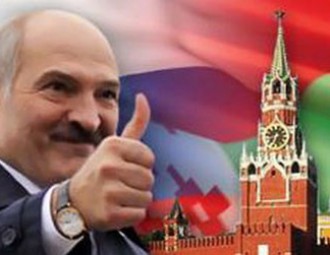Valery Karbalevich: Lukashenka winkles out the most for retaining Belarus’ sovereignty and his power

Europe cannot compensate for the expenses that Russia is paying for the “friendship” with the official Minsk – 12-15% of Belarus’ GDP.
On the eve of the Eastern Partnership Summit in Riga Belarus’ Foreign Minister Uladzimir Makei gave quite honest interview to the Washington Post.
The Minister honestly told why he won’t trade “friendship” with Russia to “friendship” with the EU, why Belarus isn’t ready to sign an association agreement with the EU, why it isn’t afraid that the Ukraine scenario is repeated.
What stands behind the statements of the Foreign Minister made on the threshold of the Summit in Riga? “EuroBelarus” Information Service talked about it with Valery Karbalevich, political scientist.
- Belarus isn’t ready to sign the EU Association Agreement: we cannot fall asleep in the Soviet Union and wake up in the highly developed European country. Such statement Uladzimir Makei made in the interview to the Washington Post. However, both Ukraine and Belarus woke up at the same time, only the first signed the Association Agreement, whilst the other isn’t even considering it. Why is so?
- The Eastern Partnership region has divided into two diametrically opposite geopolitical vectors, and EaP Summit in Riga indicated that. Some countries move towards Europe, others – to the opposite direction, to Russia. This geopolitical conflict is revealing itself now; Makei only emphasized that.
- “We are not going to be friends with Europe and forsake Russia”, - Makei says. What does the official Minsk mean when pronounces the word “friendship”? What is the “friendship” with Russia built at?
- Friendship is not only some moral psychological support, but also the financial one, without which Belarusan regime cannot exist. The assessment of the volume of Russian support to Belarus varies: 12-15% of Belarus’ GDP. Makei honestly said that the West, Europe cannot compensate for such expenses, while Russia is paying for this friendship. Makei adheres to the pragmatic approach: Europe cannot substitute Russia today.
- Makei claims that Belarus doesn’t feel the threat to its independence on the part of Russia and isn’t afraid that the Ukrainian scenario repeats – there are no reasons for that. But he immediately contradicts himself: “Today, in the context of the Ukrainian crisis, we should talk about securing and strengthening the sovereignty of Belarus.” What prevents Russia from treating Belarus the same way?
- Russia got bogged down in the Ukrainian conflict to such a degree that it just won’t be able to repeat a similar scenario in some other place. That is why I tend to agree: in the near future there is no real threat on the part of Russia.
But there is a potential threat. But all politicians only think about a few months and rarely think about the prospects. Today survival of the Belarusan social model depends on momentary help of Russia. Such approach is quite pragmatic.
- How can we build up sovereignty and independence while being in the union with Russia – the main threat for Belarus’ independence?
- There are no fully independent states, although we can talk about comparative sovereignty. Belarus is trying to preserve it at maximum, though it is under the huge influence of Russia. In general, the definition of sovereignty is relative in our region: Poland’s sovereignty and independence of the Baltic States are limited by the EU – both in terms of economy and foreign policy.
Within the frames of the existing social regime Lukashenka winkles out the most for retaining Belarus’ sovereignty and his power. In order to change the existing paradigm and a corridor of sovereignty the Belarusan model has to be changed. We need to establish an effective economic system so that the country could survive without the Russian support and without Russian preferential resources. But Belarusan authorities are not ready for that yet. That is why the level of sovereignty that is possible within the frames of the existing model is preserved, and Lukashenka is masterly using it.
-
03.01
-
07.10
-
22.09
-
17.08
-
12.08
-
30.09








































